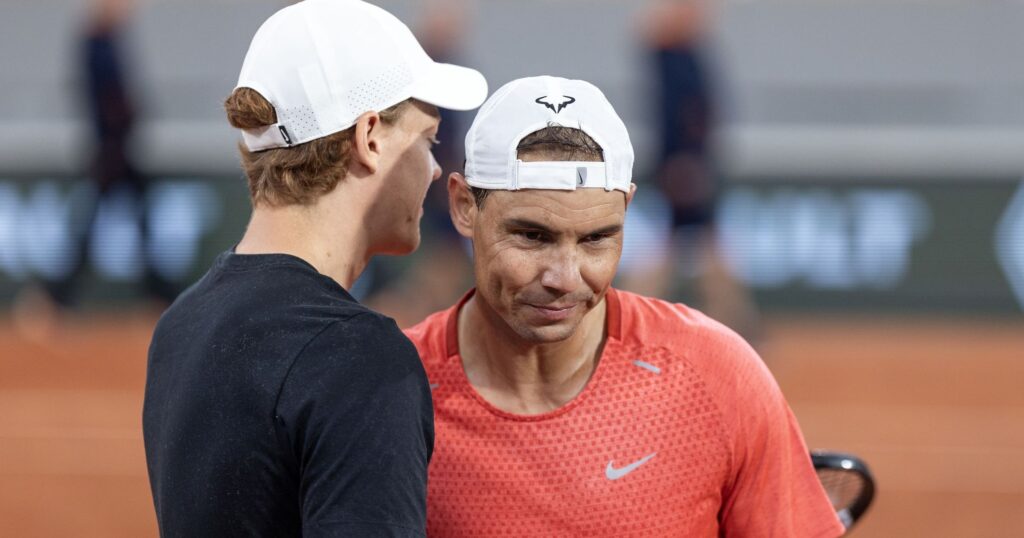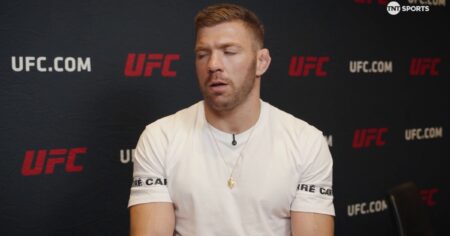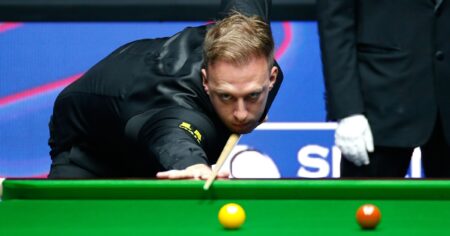Rafael Nadal has recently expressed his unwavering support for fellow tennis player Jannik Sinner, proclaiming that he “100% believes” in him as Sinner prepares to return to competitive play following a doping suspension. This controversial sentence came after Sinner was initially cleared of any wrongdoing by the International Tennis Integrity Agency (ITIA), only to find himself suspended after an appeal was made to the Court of Arbitration for Sport (CAS). The announcement of Sinner’s ban has created waves throughout the tennis community, provoking reactions from various prominent figures in the sport.
Notably, renowned players like Nick Kyrgios and Serena Williams voiced their criticisms regarding what they perceived as leniency in handling Sinner’s case. Sinner, who captured the Australian Open, one of the four Grand Slam tournaments, has maintained his innocence, asserting that the banned substance was unintentionally introduced into his system during a massage treatment. He described the suspension as “unfair,” and admitted that the situation has left him feeling “fragile,” affecting both his emotional and mental state as he heads back into competition.
In an exclusive conversation with CNN, Nadal took a firm stance on the matter, emphasizing that he believes Sinner’s actions were never intended to breach the sport’s regulations. “First of all, I 100% believe that Jannik Sinner did not want to do something that is not allowed, at all,” said Nadal. The tennis icon also addressed the broader context surrounding the suspension, stating, “From my point of view, I don’t believe that Jannik Sinner… received different treatment from another person.” This reflects Nadal’s confidence in the judicial processes governing professional tennis, asserting the integrity of decisions made by the relevant authorities.
Despite the backing from Nadal, the issue of fairness led Novak Djokovic to question whether top players, such as Sinner, receive preferential treatment in doping cases. Kyrgios lamented the overall state of fairness within the sport, emphasizing that decisions made surrounding Sinner’s case reflect poorly on tennis itself. When prompted about the potential scrutiny over a Roland-Garros victory by Sinner, Nadal remained hopeful. “I really hope not,” he responded confidently, reiterating that the justice system’s endorsement of Sinner’s participation should alleviate concerns about the player’s legitimacy.
As Sinner gears up for the French Open, one of the formidable challengers in his path is the reigning champion, Carlos Alcaraz. The young Spaniard has made headlines for his rapid ascent within the sport, garnering immense success by securing four major titles before turning 22. In alignment with his support for Sinner, Nadal also recognized Alcaraz’s potential to become one of the greatest players in tennis history, stating, “I wish and I really believe that he’s going to have one of the best careers of all time.” Nadal cited Alcaraz’s ability to manage the pressures associated with fame and expectations as a significant factor in his ongoing success.
As the conversation transitioned from Sinner and Alcaraz to his own personal journey, Nadal reflected on his illustrious career and the emotional weight that will accompany his return to Roland-Garros next month for his farewell ceremony. The 14-time champion admitted that the physical toll from injuries over the last few years of his career played a pivotal role in his retirement decision, revealing, “When I realized that my body could not do what my mind was saying, then it was the moment that there is not a chance of a comeback.” This poignant remark underscores the challenges athletes face when injuries and the reality of aging render them unable to compete at the levels they desire.
In contemplating life post-retirement, Nadal has distanced himself from the notion of transitioning into a coaching role, particularly following in the footsteps of Andy Murray, who now assists Novak Djokovic. “It’s not my moment, at all. I am in a different moment of my life,” Nadal concluded, indicating that while he may not currently envision a coaching career, he remains open to whatever the future may hold.
In summary, as Nadal champions Sinner and reflects on his own past, the dynamics in professional tennis hold significant implications in ethics, competition, and personal journeys. The upcoming matches, especially at Roland-Garros, are sure to be laden with heightened emotions and expectations not just for the players involved, but also for the entire tennis community.











